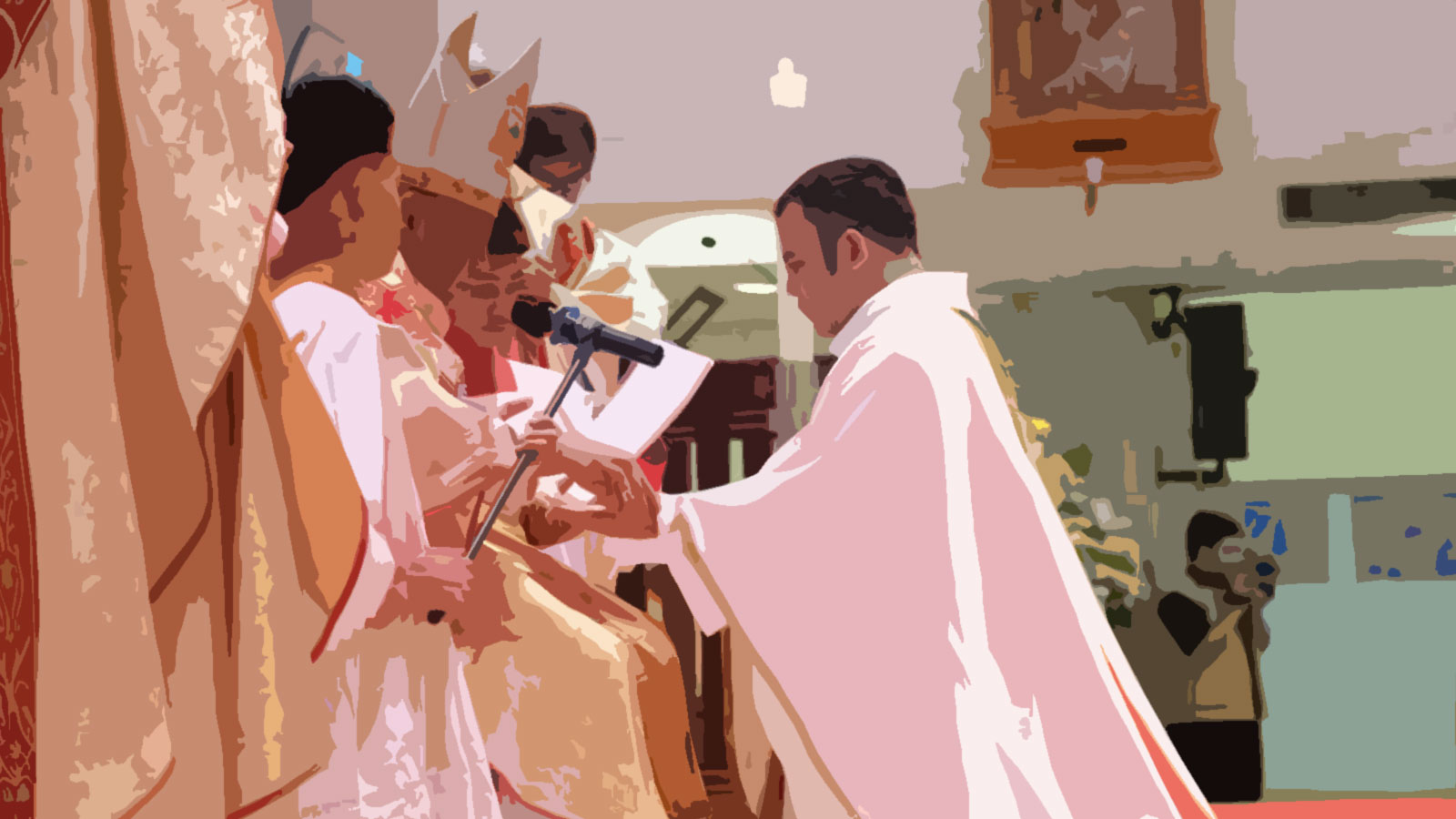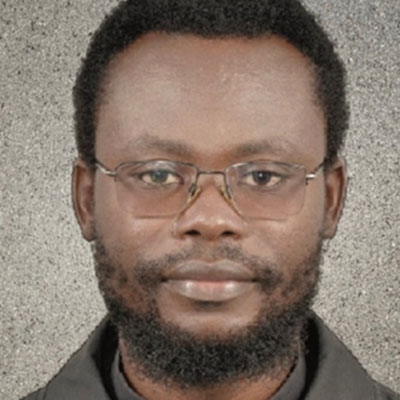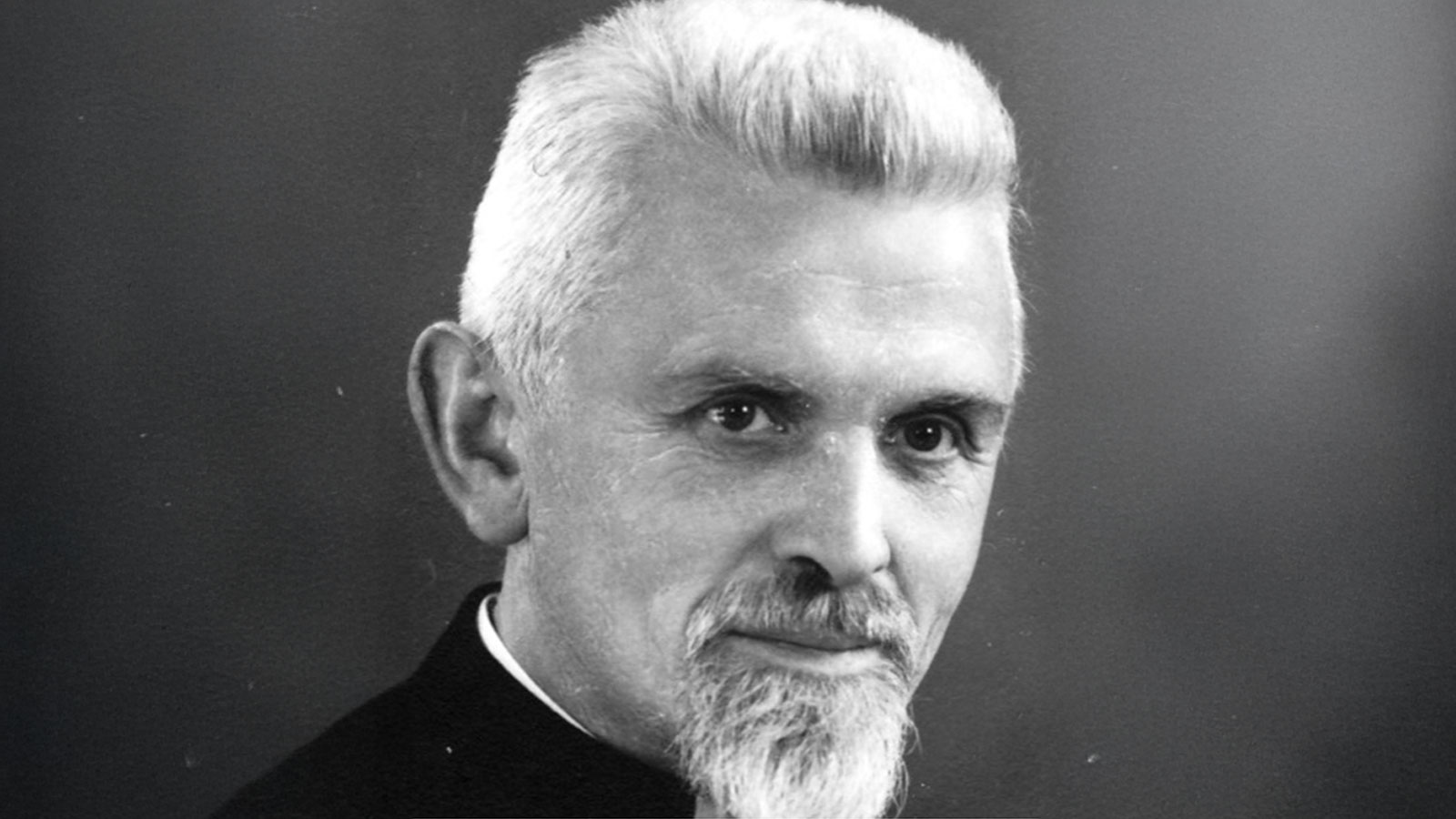 By Frans De Ridder, cicm
By Frans De Ridder, cicmAs a first point, I would say: no one is forced to be Catholic. No one is forced to take the vows of celibacy. Celibacy and Natural Family Planning are gifts of our Faith, the way, we in the Catholic Church, experience and live our identity. We are the children of God, or at least that is what we want to become.
As a second point, I would like to clarify what I understand by “salvation”. For too many people this means: “will I go to heaven?”. First of all, who will go to heaven is God’s business. Many theologians today will say that “hell exists”, yet nobody knows whether in fact anybody has been sent to hell or will end up there. We believe in God’s mercy and goodness. Hence the stakes are not in the first place on what will happen after we die. The stakes are on how I live a meaningful fulfilling really human life today. The stakes are on how to live my life in a divine way, in the way God wants it. Christianity is about divinization of human life: in other words becoming our true selves: children of God.
I have come so that they may have life
In John 10:10, Jesus makes a blunt statement. “I have come so that they may have life and have it more abundantly. I tend to understand this as referring to our lives here on earth, consistent with the key-line in the Lord’s Prayer. Your Kingdom come/Your will be done/on earth as it is in heaven. What Jesus is all about is to make us aware that we are the children of God and to help us to live accordingly. This is a journey of constant discoveries, and constantly dying to old ways, nurturing new life-giving ways of living. Mt 16:24-28 (and its parallels in Mk 8:34 – 9:1; Lk 9:23-27; Jn 12:25-26) gives a short description of: The Conditions of following Christ. St. Paul echoes these words in countless texts of his letters: to renounce self, take up the cross and follow me. It means to die to the old self, to leave “self” behind, to become a new creation, putting on Christ. Maybe his letter to the Romans, Chapter 8, is the most eloquent and powerful.
The cross is not the goal but the way
There is another very important element needs to be re-affirmed. The goal of Christianity is not the cross. The cross is the way. The goal of Christianity then is to embrace the cross. This does not mean, to look for suffering in a masochistic way. It means to say that, in order to live our life in a human and humane way, we may have to pay a price. The human being is self-centered, “selfish” by nature. Saint Paul in Gal 5:16-21 describes what it means to live according to the “flesh” (=the world’s plan). Right after it, he describes the fruits of the Spirit: Gal 5:22-26. One could also add Eph 4:17-32; Col 3:5-11; Rom 1:18-32. 12:1-2, and many more.
Here is an alarming sharing by a gynecologist in Belgium. This doctor asked me: “Father what do you think…how many women are not fulfilled in their sexual life?” In order to save my face, I made a guess: “50 %”? He grinned and said: “No, Father, the answer is 90%”.
It begs the question: “If being sexually genitally active is so fulfilling, then why is there such an alarming, staggering high rate of divorce?”
Love is not the same as doing what we like. Love is doing what is good for the other and taking responsibility for the consequences. This calls for focusing on the other (dying to the self, dying to what I like). This calls for awareness and discipline.
The gift of Celibacy
As priests and religious, we do not pretend that we do not have sexual desires and needs, that we cannot fall in love, that we cannot have a crush on someone. All of us know better! In Marriage Encounter, I learned the “golden rule”: “To love is not a feeling. To love is a decision.” What matters is not what I feel or like. What matters is what I do!
For the sake of God’s Kingdom, as people living the vowed life, we can live at peace with our sexuality, without having to enter into intimate (of the marriage-kind) relationships. Nobody has ever died because of sexual abstinence. As human beings, we are not the slaves of our bodily bio-chemistry. This makes us essentially different from the animals. This, once more, highlights the importance of the vow of celibacy in our troubled confused times. Celibacy is of burning actuality. I like to quote Saint Theresa of Avila: “The one who has God, nothing she/he shall want!”
For those in the vowed life, a deep personal relationship with the living God in prayer or contemplation is a must! I think that, two hours a day is a minimum.
Natural Family Planning
Now I raise the question: “Could a similar logic be applied to Natural Family Planning, for the sake of the Kingdom in their family life?” My answer is: YES. Hundreds of thousands of couples worldwide practice it. (Mother Teresa of Calcutta and her sisters have taught the Natural Family Planning (NFP) method to tens of thousands of simple people in India). They are among the happiest couples I know. Among them, there are almost no divorces, no adultery, no abortion: indeed a new abundant life! Too beautiful to be true? Jesus keeps his promises! Can it be done? Is it not too demanding, unreasonable, naive?
My parents were simple farmers, both had completed elementary school. They agreed to wait until marriage before starting their intimate relationship. They opted for planning their family in the Natural Way, wanting six children. They could do it! When my younger sister was born, my mum was thirty four years old. For many more years, they faithfully practiced the Natural Family Planning. They were people of faith, committed to love Jesus’ dream: Your Kingdom come! Our vocation, which is an invitation coming from our loving God and Father, is: “I am your God, you are my people!” My parents were people of prayer. God was very real in their lives.
Married people also have to practice celibacy
Married people are celibate with regard to all other people but their own spouse. They are celibate in their own marriage if, for good reasons, sexual genital intimacy is not indicated. This can be for health reasons, physical absence, Natural Family Planning, sexual fasting. The fallacy in the modern world is: I do what I like! To like is often a far cry from real love. Chesterton coined a wonderful line: “fallacies do not cease to be fallacies because they become fashions.”
Confucius, (551-479 BC) “隨心所欲, 不逾矩” said, “Do what is in your heart, yet do not go overboard!” There are boundaries. And that is, in many situations, the meaning of “the cross”.
I repeat, nobody is forced to become Catholic or to be follower of Christ. It is an invitation and a kind of pledge for happiness already here on earth. The multimillion dollar question is: “How great is God, or who is your God?”
To end with a quote from Nietzsche in Viktor Frankl’s book: Man’s Search for Meaning: “He who has a ‘Why’ to live for can bear almost any ‘How’”.
Or again Confucius: 天下無難事, 只怕有心 ! “Nothing is impossible for the one who has a sufficient motivation”.
Our CICM Founder, Theophile Verbist, was quoted as saying: “Amanti nihil impossibile est”: “For the one who loves nothing is impossible”.







